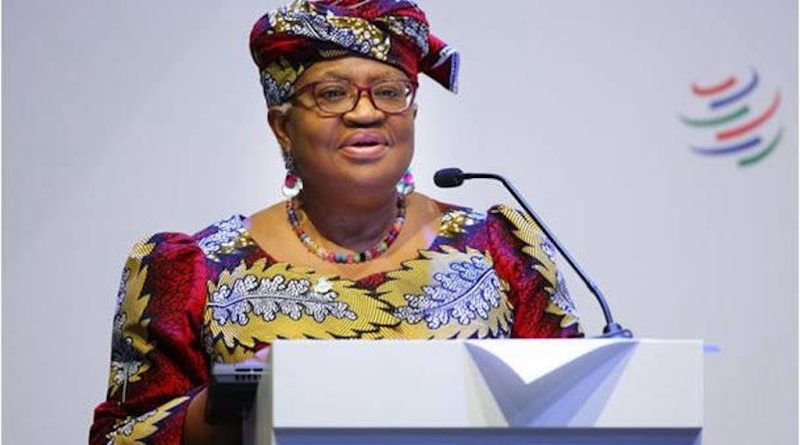Okonjo-Iweala urges reforms as intra-African trade costs 20% higher than global average
World Trade Organization (WTO) Director-General, Ngozi Okonjo-Iweala, has called for swift reforms to reduce the high cost of trade within Africa, revealing that it currently costs about 20 per cent more for African nations to trade with one another than with countries outside the continent.
Speaking in an interview with CNN’s Christiane Amanpour on Tuesday, Mrs Okonjo-Iweala said such inefficiencies undermine the purpose of the African Continental Free Trade Area (AfCFTA), which was created to promote commerce and industrial integration across the region.
“It costs 20 per cent more for us to trade with each other on the continent than with others externally. Something is wrong with that. We need to bring our average costs down,” she said.
The WTO chief described the AfCFTA as one of Africa’s most promising economic initiatives but emphasised that implementation must move faster for the continent to unlock its full potential.
The African Trade and Economic Outlook 2025 reports that intra-African trade grew by 7.7 per cent in 2024 to US$208 billion, up from US$193 billion in 2023. The increase, driven by the AfCFTA, improved infrastructure, and stronger trade policies. The report warned, however, that Africa’s trade remains exposed to global shocks, calling for greater industrialisation and economic diversification.
The WTO DG noted that only between 15 and 20 per cent of trade among African nations occurs within the continent, compared to more than 60 per cent among European Union members.
Mrs Okonjo-Iweala linked Africa’s high trade costs to poor infrastructure, unreliable electricity supply and expensive logistics. She said that improving ports, roads, and energy systems would reduce the cost of doing business and make it easier to connect markets across the continent.
Despite Africa’s wealth of natural resources, holding about 30 per cent of the world’s mineral deposits and nearly 70 per cent of its arable land, she said these assets have not translated into strong and inclusive growth because of weak infrastructure and other structural challenges.
The DG noted that the International Monetary Fund (IMF) projects Africa’s economy to expand by about four per cent in 2025, roughly one percentage point faster than the global average. However, she urged governments to aim higher by investing in people and technology.
She highlighted that by 2050, Africa’s population will rise to about 2.5 billion, representing roughly 22 per cent of the world’s working-age population. To turn this demographic shift into an advantage, she said the continent must prioritise education, skills, and digital innovation.
“You can’t just say we have people, therefore, we are rich. They’ve got to be skilled. We’ve got to be up with technology and AI,” she cautioned.
READ ALSO: Prominent Nigerians, financial experts to speak at Realnews 13th Anniversary Lecture
Mrs Okonjo-Iweala expressed optimism about Africa’s future, pointing to the creativity and resilience of young entrepreneurs driving innovation in sectors such as fintech, agritech, and the creative industries.
She described Africa’s youth as its greatest strength and urged governments and investors to provide greater support for their efforts.
Despite persistent challenges, she said she remains proud of the continent’s progress and confident in its ability to achieve inclusive and sustainable growth.


